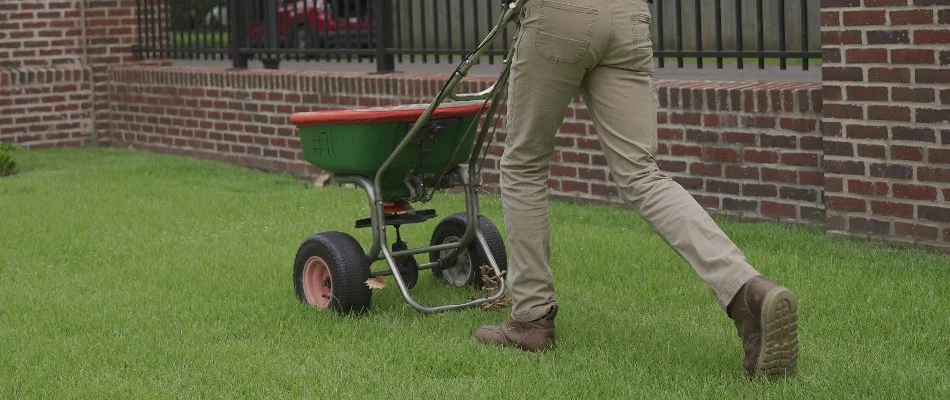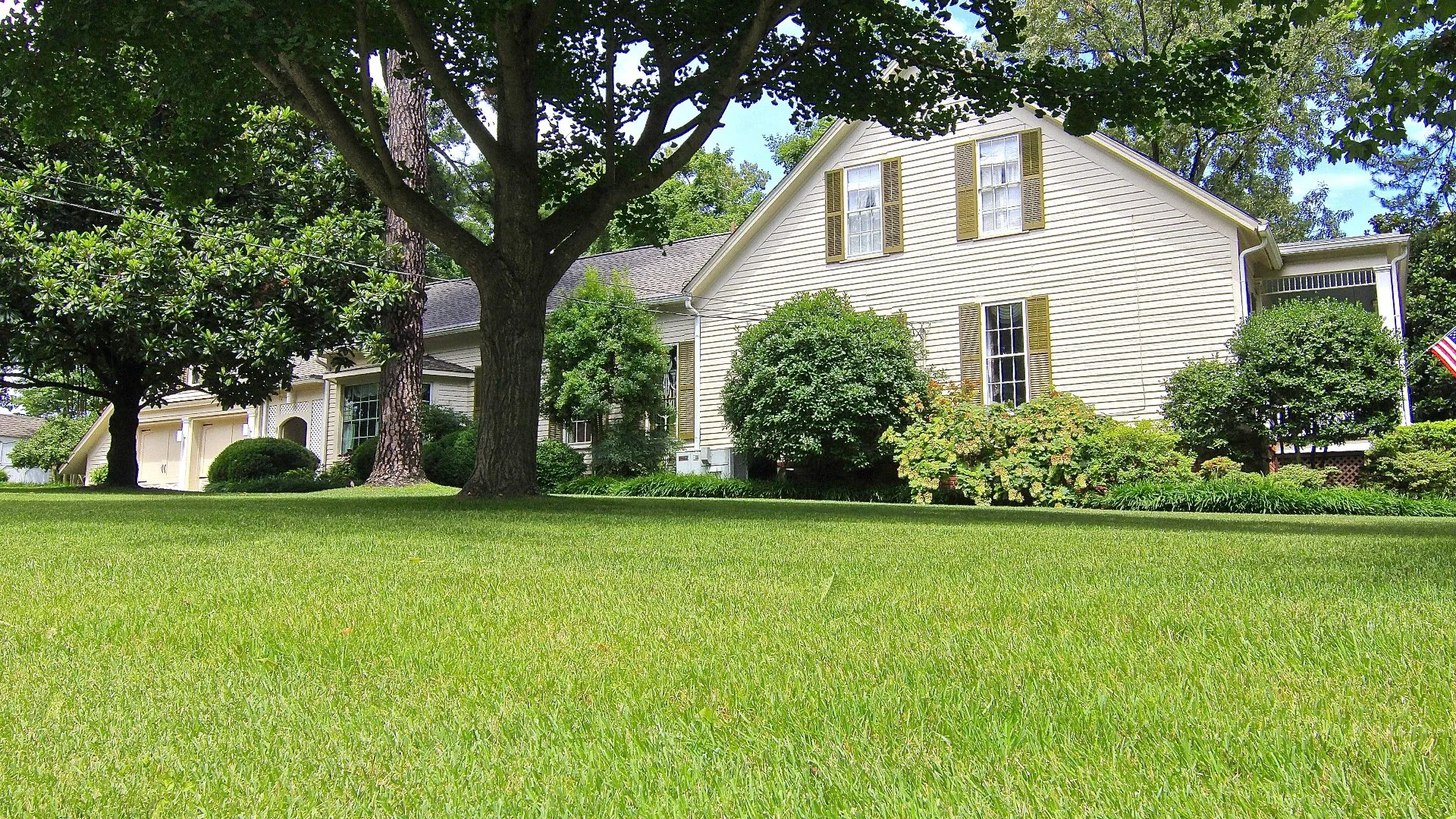Fertilizing your lawn is an important part of keeping it healthy and looking its best. However, timing is crucial when it comes to fertilizing, especially in relation to rainfall. The question of whether it's better to fertilize before or after a rain is a common one. The general rule is to avoid applying a fertilizer treatment on your lawn in Tennessee before rainfall because the rain can wash away the product before it can be absorbed. Ideally, you'll want to fertilize your lawn after it rains and once the grass blades are dry to ensure optimal nutrient absorption. You can make your life easier by enrolling in a professional lawn fertilization program. Experts will monitor the weather and ensure the fertilizer treatment is timed perfectly if there is rain in the forecast!
Avoid fertilizing your lawn before rainfall.
The idea of using an impending downpour to water in fertilizer might sound appealing, but it can lead to several problems. When you fertilize right before heavy rain, there's a significant risk that the nutrients will be washed away before they can be absorbed by the soil. This not only wastes your time and resources but also poses environmental risks, as the runoff can carry excess fertilizer into storm drains and waterways, contributing to water pollution and algal blooms.
Moreover, heavy rain can cause fertilizers to spread unevenly over your lawn. Instead of seeping into the soil uniformly, the rushing water may cause some areas to receive too much fertilizer while others receive too little, resulting in patchy growth and inconsistent coloration.
On the other hand, if the forecast shows only light rain, you can safely proceed with fertilizing your lawn. Light rainfall acts as a gentle irrigator, helping to dissolve and deliver nutrients to the soil without washing them away. This ensures that the fertilizer is absorbed effectively, reaching the grass roots where it can promote healthy growth and vibrant color.
You can fertilize your lawn after it rains.

Fertilizing after a normal rainfall is often more advantageous, provided you take a few precautions. First, ensure that the grass blades are completely dry before you begin. Fertilizer granules can adhere to wet grass, preventing them from reaching the soil and causing potential burn spots on the blades.
It's also crucial to check the weather forecast for a few days of clear skies following your fertilization. Sunshine and warm temperatures not only help grass utilize the nutrients more efficiently but also assist in drying any excess moisture, reducing the risk of fungus and disease. This combination of factors encourages robust growth and a healthier lawn.
Make your life easier by enrolling in a lawn fertilization program.
If you want an easier approach to lawn care, enrolling in a professional lawn fertilization program is your best course of action. Professionals bring expertise in applying fertilizers at the right time, considering local weather patterns to optimize nutrient absorption. Professional lawn fertilization programs also provide tailored care that is specific to your grass type, soil conditions, and regional climate. Experts will ensure consistent treatment, leading to uniform growth and a healthier lawn overall.
Give us a call today to sign up for our lawn fertilization service!
Fertilizing your lawn can be tricky with rainfall, but we'll help take any guesswork out of it. Here at Herbi-Systems, we offer a lawn fertilization service that includes multiple treatments during the growing season, ensuring your grass has a consistent supply of much-needed nutrients. This service is offered to commercial and residential properties, along with HOAs, in Memphis, Collierville, Germantown, TN, and neighboring areas. Call us today at (901) 382-5296 to sign up!



Comments (0)
Thanks for your comment!
Thanks for your feedback! Your comments have been successfully submitted! Please note, all comments require admin approval prior to display.
Error submitting comment!
There is a problem with your comment, please see below and try again.